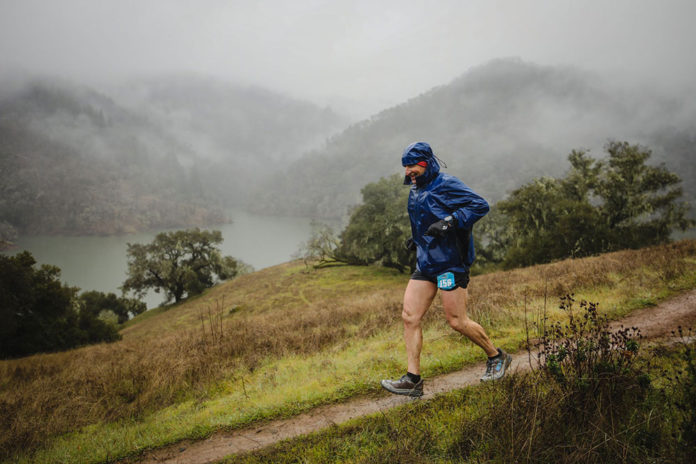

Skip Brand had high hopes for the Lake Sonoma 100, or the LS100 as he wanted to brand it (so to speak). It was a natural progression, from the LS50 miler and the 100-kilometer races he’s organized in the past, in his role as race manager for Healdsburg Running Company and board chair of the Friends of Lake Sonoma.
He saw the epic 100-mile race as a chance for Lake Sonoma, and the Healdsburg area, to launch into the top tier of ultra-runs in the country, if not the world. “We’re trying to punch above our weight and have a Hardrock qualifier,” he said, referring to the United States’ most celebrated and difficult run, Colorado’s Hardrock Hundred Mile Endurance Run, or the Hardrock 100.
That one is almost entirely above 11,000 feet, and the effects of altitude sickness and potential oxygen deprivation must be added to the rigor of running 102 miles.
Almost gleefully describing the LS100 as a “sufferfest”—a term used in extreme sports competition, from marathons to rock-wall climbing—Brand even admitted that the projected rainy weather for Feb. 1 might be an advantage, keeping times down and adding to the race’s reputation. “The reason I don’t mind bad weather, it sounds counterintuitive, but if we have a lower finish rate, the legend of the race, sadly, will grow,” he said. “If that makes sense.”
He got more than he bargained for. The early February rainstorm dumped on the Sonoma County reservoir, raising its banks by the hour and flooding otherwise passable sections of trail. Though the race got underway on schedule at 6:30am on Feb. 1, 15 hours later it was canceled when a temporary bridge at Mile 75 washed out.
“We had to make a safety call. Without the bridge, there’s no safe way to get across the creek,” Brand said on Sunday afternoon. “The creek is 6-7 feet deep and raging right now. Plus, the wind picked up in the late afternoon and several trees came down, creating additional hazards.”
Putting the best spin on it, as is his wont, Brand added, “It’s really unfortunate because the runners were holding up so well despite the weather,” noting that 93 of the 106 starters were still in the race after 15 hours.
In the lead were Dennis Boic and Lindsey Dwyer, who “had established commanding leads but were forced to stop at mile 68.5,” said the announcement from Brand and Sam Karthan, both listed as Lake Sonoma Race Series Directors.
The race was dedicated to the firefighters who have worked to save Lake Sonoma’s backcountry and other regions of Northern California. All firefighters were able to enter the race for free (the regular fee was about $400) and the race was scheduled for February, normally the firefighters off-season, to accommodate them. The January fires in Los Angeles, however, reduced the number of firefighters who did enter.
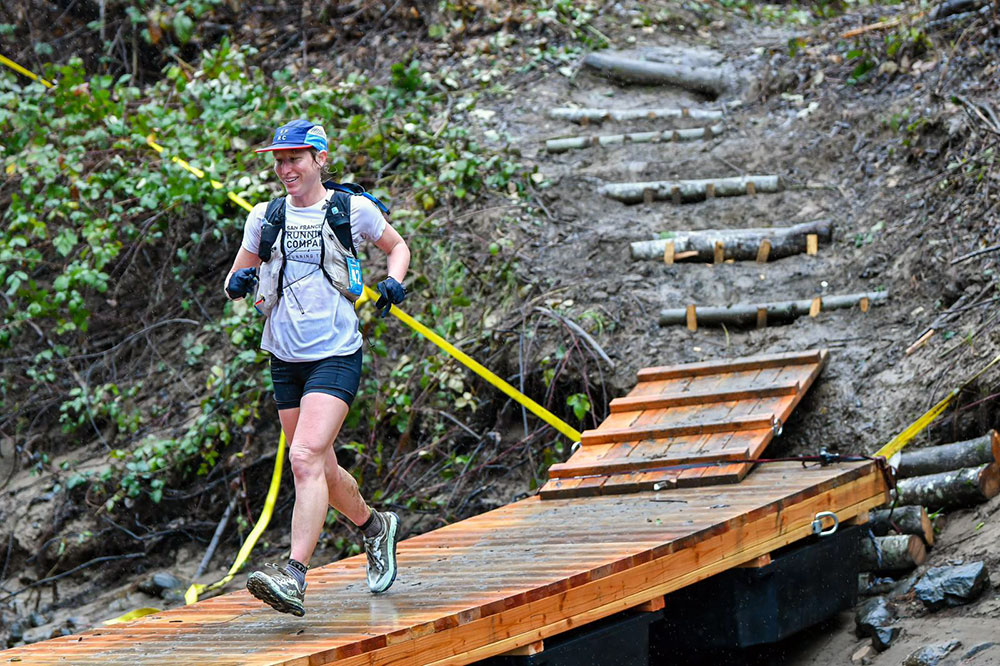
But the weather proved too much, even for first-response firefighters and well-conditioned athletes used to adversity and suffering.
“Safety for runners is our No. 1 concern,” Brand said. “We fully understand the training effort and work put in by our firefighters and runners and are really sorry—gutted, actually—that we had to cancel.”
Despite the cancellation of the 100-mile distance, race managers managed to get officially recorded times for the 100-kilometer distance, which many runners completed. Dennis Boic of Redding led almost from the outset, and his 100k time was registered as 11:56:21, just under 12 hours.
Lindsey Dwyer of Larkspur finished in second place but was also the top female finisher, with a 100k time of 12:39:26.



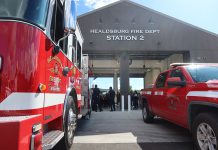
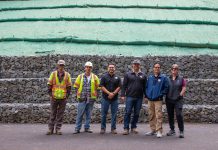
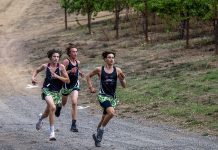




Good heavens! That’s a tough run. Try catering for 14 hours straight. See how you do.